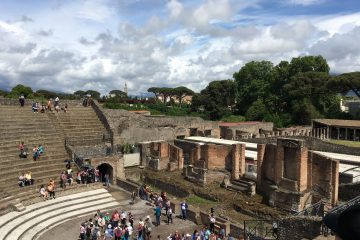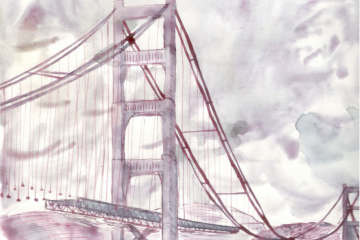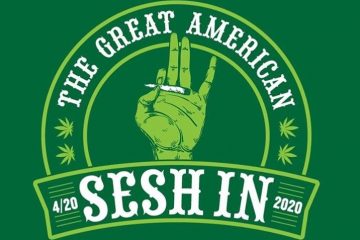Facebook Has Become Garbage. Where Do We Go Now?
This originally appeared in my Broke-Ass City column for the SF Examiner
(The short version: You can circumvent all the algorithms for my stuff right here.)
Facebook announced earlier this year that it’s completely changing its algorithm — a move that will reduce the amount of actual news provided in a user’s “News Feed.”
Naturally, nearly every person I know who works in media freaked out. Publishers of all sizes have become so dependent on Facebook for traffic that this move could potentially ruin them.
The official word from CEO Mark Zuckerberg was that this change is about doing right by Facebook users by showing people more updates by their family and friends. But there’s plenty of buzz on the street that a large part of this algorithm change is part of Facebook feeling guilty for helping Donald Trump get elected by allowing publishers to proliferate fake news.
To this, I say: Clean your own damn house. Don’t burn mine down.
Facebook has spent the better part of the last decade building itself up in an attempt to be the place where all your internet needs are met. When it couldn’t buy Snapchat, it replicated it with Instagram Stories. When it didn’t like how YouTube videos performed better than ones on Facebook, it tweaked the algorithm to squish the virality of any YouTube video posted on Facebook. It’s also tried to go toe-to-toe with Craigslist by providing groups where users can buy and sell things.
But there has been nothing Facebook has worked harder at than becoming the No. 1 way news is distributed.
Until Facebook made its mission to own the distribution of digital news, we got our news either by visiting specific sites or subscribing to collated feeds. This aided the explosion of blogs because, once you found a blog you liked to read, there was no artificial system dictating what you saw and when you saw it. Then, Facebook’s News Feed came along and promised to make reaching readers so much easier.
At first, it actually was easier: You’d post something, and oodles of your followers would see it and drive not only lots of traffic but meaningful conversations. People were spending lots of time on Facebook, so why not meet them where they were?
However, once publishers gave the keys to Facebook, the trouble started.
Facebook didn’t care that publishers spent years of hard work on creating content to build their following. The company started holding publisher’s followings hostage, making it increasingly harder to reach readers — unless you paid. And at first, paying for distribution worked really well. But Facebook made this, too, more difficult over time.
The problem with an algorithm is that you don’t really know how to appease it. Through lots of trial and error, publishers attempted to figure out how to cleverly word things, so as not to set off Facebook’s internal sensors. If Facebook thought you were making money — say, throwing an event or selling merchandise — it squished your organic virality and forced you to pay them. Because of this, publishers started spending more and more money just to reach the followers that they’d built, and the News Feed filled with ads.
How was good content, created by scrappy little publishers, supposed to compete with companies with multimillion dollar ad budgets, especially when the companies were now spending their dollars on Facebook ads instead of advertising with the publishers?
And now, after slowly bleeding publications dry of traffic and ad dollars, Facebook announced it’s turning off the faucet completely. Besides the fact that this is bad news for anyone who creates interesting, thoughtful and important content, do you really want your News Feed to just be full of friends complaining about their jobs and sharing pictures of their kids and what they ate for dinner?
Facebook says this is a step toward making a better and healthier News Feed; that is utter and complete bullshit. It’s been 6 months or so since they instituted this change and the News Feed has only gotten worse. So here are some alternatives that will allow you to continue to see the great stuff we create for you:
1. Sign up for my RSS feed so you can get the new stuff we make delivered to your inbox each morning.
2. Join my mailing list. I send out an email blast once a week that has all the best deals we’ve found for you as well as the best events and content from the site. Make sure to add it to your address book so it doesn’t get marked as spam.
3. Get Broke-Ass Stuart bumped up to the top of your News Feed. Find out here right here.










